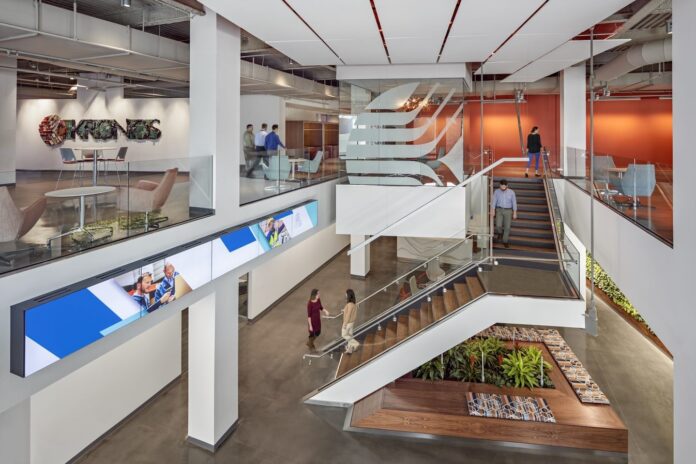When Kronos Inc. and Ultimate Software recently announced they are soon to become one (the new entity’s name will be announced soon, according to the company), reactions were swift and varied to the projected $22 billion marriage. Past history, of course, tells observers that mergers are always a risk; some go on to become smashing successes, others just smash onto the rocks.
To global industry analyst Josh Bersin, the impending merger appears to be an “opportunistic deal probably based” on the long-term goal of Hellman Friedman [the controlling shareholder of both Kronos and Ultimate] to build a large HCM company.

“The two companies believe that, by merging a $1.5 billion company in HCM with a $1.5 billion company in workforce management, they will create a $22 billion market cap company,” Bersin says. “That’s kind of hard to understand from my standpoint.”
Read the original story: Ultimate, Kronos join in major merger

Bersin adds that, while he does see many synergies–for example, Kronos can sell HCM to its clients, Ultimate can sell workforce management to its clients–the real impact is not yet clear.
“All of Kronos’ existing customers already have an HCM system, and most of Ultimate’s customers are likely already looking at other workforce-management tools,” he says.
Bersin adds that observers should remember that ADP has a massive business in the small-to-medium market, and the company’s platform is a far newer, more flexible solution than almost any other in the market. He explains that many other companies–from Gusto to Bamboo to Zenefits to Paychex to Paycor and more–are all selling integrated HCM products to small companies. That means there is a huge amount of competition for the new entity.
“In the mid-market companies like ADP, Infor, Ceridian and, of course, SuccessFactors, Workday and Oracle and emerging PEOs like TriNet, Insperity, Sequoia and others are all growing,” Bersin says.
More from Bersin: Performance and rewards in the future of work
Bersin labels Kronos and Ultimate as “two excellent companies with terrific product sets,” though the reasoning for the merger may have more to do with two companies looking for a partner and less about “solving new problems” for clients.
“The big issues companies face today are not buying more HR software, but actually buying less,” he says. “Companies are looking for simpler, more integrated solutions–if this merger makes this happen, it could be a long-term winner.”
Jason Averbook, industry analyst and co-founder/CEO of Leapgen, takes a more optimistic view of the deal. He says, in fact, the merger “creates a juggernaut in the HCM-technology market like never seen before.”
Averbook explains that the deal represents a combination of mission-critical technology foundations: time and labor management and workforce planning along with foundational core people data.

“When we talk about the future of work, these are the foundational drivers that will help organizations be more efficient in maintaining and developing their workforce,” he says. “At the same time, it allows them to plot a future picture of value for the workforce from both an HR and a business point of view.
“These are two companies that have become wildly successful in creating strong foundations for HR to build upon, and now the whole can be greater than the sum of the parts,” Averbook says.
More from Averbook: People transformation with a disruptive mindset
He says this strategic merger for the HR-technology industry ties directly into that priority for HR and business leaders around the world. The Kronos and Ultimate Software union, he notes, positions the combined organization for “amazing synergies” across huge, existing customer bases.
“This union gives the market a new way to look at the future and the digitization of the people function,” Averbook says, noting that the new cloud-computing “juggernaut” is more than a combination of organizations with great technology.
“Kronos and Ultimate Software are two of the most admired, employee-centric, experience-focused companies we know,” he says. “This is continued proof for our own industry that creating a superior employee experience drives long-term, sustainable value in organizations and will be a competitive differentiator in all industries for decades to come.”
John Sumser, principal analyst at HRExaminer, says the proposed Ultimate-Kronos entity shows the breadth and depth of the available market in HR tech. With over 33,000 combined clients between the two firms, there are only a few hundred overlaps.

“The first opportunity for the new enterprise is cross-selling between accounts,” Sumser says. “From a customer perspective, this means that there is little to be concerned about in the near- and medium-term. The joint operation will not be sunsetting any product lines.”
Meanwhile, Sumser says, radically rethinking the data asset created by the merger is an “enormous” opportunity.
“The combined offerings have visibility, from work planning and scheduling through the full talent-management suite,” he says. “It is impossible to overestimate the value that will be unlocked with projects that apply AI to the entire HR ecosystem.”
More from Sumser: When intelligent tools don’t see what matters
Sumser adds that, as with all mergers, the risk is in the execution and integration of the two operations, explaining that the firms are beginning with a “nothing’s going to change” approach. But, he says, it is worth noting that the most senior parts of Ultimate Software’s leadership–mainly founder Scott Scherr and CEO Adam Rogers–have chosen to leave.
“With that, the new firm has $3 billion in revenue, a target of $6 billion by 2025 and a clear focus on growth. I’d say this will be a big IPO in 2022,” Sumser predicts.
Bill Kutik, HR Technology Conference chair emeritus and technology columnist for Human Resource Executive®, notices some uncertainty with the merger.
“Kronos has a long-standing, lucrative and complicated reseller agreement for its workforce management solutions with ADP, which considers Ultimate, founded and originally staffed completely by its former executives, one of its biggest competitors,” Kutik said. “The survival of that agreement is one question mark in this merger.”
According to a company spokesperson, exact product details are still being determined, but the merger will put the new company in “an even better” position to help customers solve their business needs, with an advanced integrated product suite that includes the strongest functionality across all areas of the employee experience–all while continuing to take care of “UltiPeeps and Kronites” around the world.
As stated in the announcement press release, Aron Ain, longtime Kronos chief executive officer, will be CEO and chairman of the combined company–guiding an experienced executive team comprised of leaders from both Ultimate and Kronos.
*
Staff writer Jen Colletta contributed to this report.



